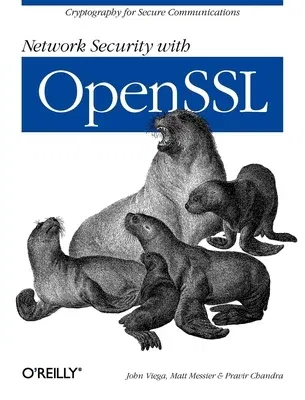Most applications these days are at least somewhat network aware, but
how do you protect those applications against common network security
threats? Many developers are turning to OpenSSL, an open source version
of SSL/TLS, which is the most widely used protocol for secure network
communications.The OpenSSL library is seeing widespread adoption for web
sites that require cryptographic functions to protect a broad range of
sensitive information, such as credit card numbers and other financial
transactions. The library is the only free, full-featured SSL
implementation for C and C++, and it can be used programmatically or
from the command line to secure most TCP-based network
protocols.Network Security with OpenSSL enables developers to use this
protocol much more effectively. Traditionally, getting something simple
done in OpenSSL could easily take weeks. This concise book gives you the
guidance you need to avoid pitfalls, while allowing you to take
advantage of the library's advanced features. And, instead of bogging
you down in the technical details of how SSL works under the hood, this
book provides only the information that is necessary to use OpenSSL
safely and effectively. In step-by-step fashion, the book details the
challenges in securing network communications, and shows you how to use
OpenSSL tools to best meet those challenges.As a system or network
administrator, you will benefit from the thorough treatment of the
OpenSSL command-line interface, as well as from step-by-step directions
for obtaining certificates and setting up your own certification
authority. As a developer, you will further benefit from the in-depth
discussions and examples of how to use OpenSSL in your own programs.
Although OpenSSL is written in C, information on how to use OpenSSL with
Perl, Python and PHP is also included.OpenSSL may well answer your need
to protect sensitive data. If that's the case, Network Security with
OpenSSL is the only guide available on the subject.

